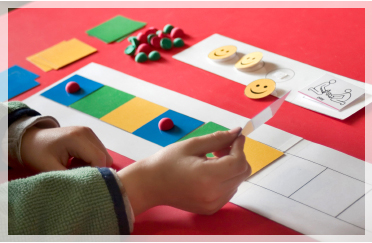|
Becoming a special needs parent is not something most of us asked for. We are made, not born. The majority of us do not receive warning that our children are going to be different. We find out slowly and incrementally, often battling denial every step of the way. Sometimes we struggle with denial without even realizing it: we don’t know that we’re putting a great deal of energy into strenuously not seeing something. The general feeling of unease seeps into much of life, causing stress and anxiety whose source we can’t trace. The act of setting up an evaluation is the event that separates our old lives from our new ones. Like many symbolic acts, it comes with its own complicated emotions. Just admitting the possibility that a child may not be typical can feel like a betrayal. Comments from well-intentioned friends or family suggesting that it’s a phase your child will “grow out of” or that “all kids develop at their own pace” can add to the confusion. We often feel intense pressure to ignore our gut feelings. Friends, relatives, even pediatricians may tell us that all kids hit the milestones eventually, that we should just relax. We may listen for a while, but eventually our guts win out and we make that first call. In that sense, acknowledging that a child may need intervention can be liberating. It is the first step towards trusting yourself as the ultimate authority and becoming an advocate for your child. Becoming a special needs parent means taking on a job you never expected to have. Strangers are telling you that something is not right with your child, and every instinct makes you want to stick up for and defend them. You’re required to learn more about child development than most people and to memorize an alphabet soup of acronyms and governmental agencies. You begin to educate yourself about your child’s needs and legal rights at the same time that you’re asked to fight for them. You may find yourself staying up late every night frantically googling, confused by your options and upset that this huge, critical project is your responsibility even though you barely understand it. My training in this area comes from my own real-life experience, supplemented by a great deal of outside education. I want to use that training to help you be the best special needs parent you can be. It’s not easy, and it’s not fair. But it’s doable, and it’s a lot easier with the right support.
|
 |

